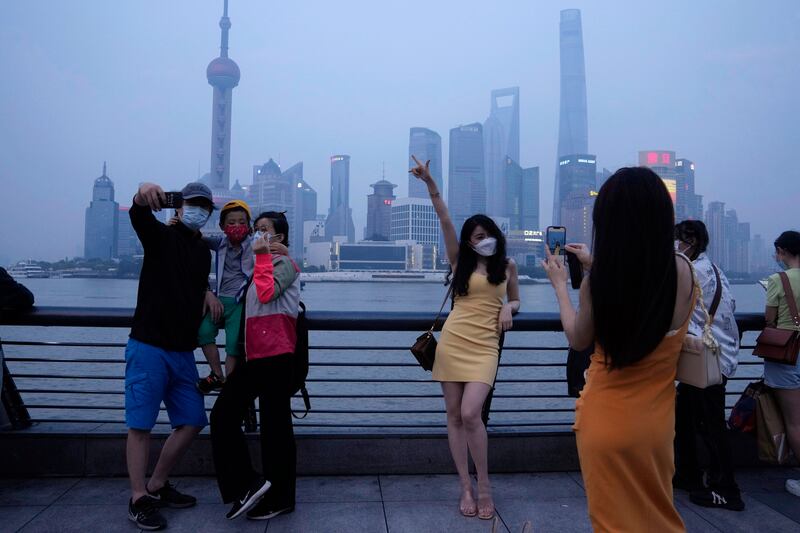After 11 new cases of COVID-19 were detected over the past two days, Chinese officials announced they are locking down Shanghai over the weekend, home to 25 million residents and a critical trade and financial hub that also hosts the busiest shipping port in the world.
The news comes just 10 days after residents in the city were allowed to reemerge in public after a two-month lockdown, part of China’s controversial “zero COVID” policies.
Here’s the news: Racing to stop a wider outbreak after discovering a handful of community cases, including a cluster traced to a popular beauty salon, Reuters reports Chinese authorities have ordered PCR testing for all residents in 14 of Shanghai’s 16 districts over the weekend.
The latest scare triggered a rush on grocery stores and online platforms to stock up on food, as users of China’s Twitter-like social media platform Weibo expressed fear they could be locked down for longer, having only started going back to work after the last lockdown was lifted on June 1, per Reuters.
Beijing was also on alert as eight new cases of COVID-19 were detected in China’s capital city on Friday.
The return of restrictions and mass testing in China’s biggest cities underscores the difficulty of eliminating the virus while the rest of the world accepts it as endemic, per Bloomberg. The disruption wrought by pandemic curbs have impacted production at companies like Sony Group, Apple and Tesla, with the electric-car maker only now normalizing operations at its factory in southern Shanghai.

Keeping COVID-19 cases near zero: China’s government remains steadfast on its “dynamic clearing” policy of reacting swiftly to outbreaks in order to bring community case numbers back to zero, according to The Guardian. The resource-intensive policy includes mass quarantine centers for people considered close contacts — often as far removed as being a neighbor in the same building but several floors away. Its impact has had a significant effect on China’s economy.
Experts predict that China will struggle to meet its economic growth target of about 5.5% this year as virus lockdowns force business shutdowns and snarl supply chains, per The Guardian.
The price of supply chain issues: Some U.S companies are recalibrating production strategies as lockdowns in China stall or slow factories in which thousands of products are made.
Earlier this month, Apple announced it was moving some of its manufacturing capacity from China to Vietnam after supply chain disruptions stemming from coronavirus lockdowns have contributed to product and parts shortages, per CNBC.
Apple CFO Luca Maestri warned of several challenges the company faces in the current quarter, including supply constraints related to COVID-19 that could hurt total sales by between $4 billion and $8 billion.
At a Thursday forum focused on China relations hosted by World Trade Center Utah and Utah Valley University, Sarah Kemp, vice president of international government affairs at Intel, noted Shanghai’s significance both to China’s domestic economy and the global trade ecosystem.
“Shanghai accounts for 20% of China’s foreign trade,” Kemp told attendees of the China Challenge Summit at UVU’s Noorda Center. “It’s the busiest port in the world ... and, for the last 12 years it’s been rated No. 1 in the world for throughput of shipping containers.
“Seventy percent of all of your laptops passed through Shanghai. It has a huge impact.”


